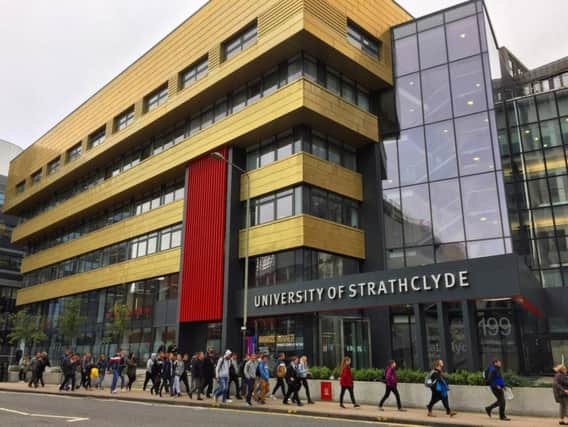Strathclyde Business School lands £1m innovation fund


The international and interdisciplinary project is one of five projects selected by ESRC (the Economic and Social Research Council) which are jointly funded to £3.8 million.
The SCER project is entitled “Improving management practices: work engagement and workplace innovation for productivity and wellbeing” and will be led by Professor Patricia Findlay and Professor Colin Lindsay, supported by SCER researchers Jo McQuarrie and Eli Dutton.
The SCER-led research collaboration also includes leading international scholars Professor Arnold Bakker, Erasmus University, and Professor Evangelia Demerouti, Eindhoven University of Technology, world leading researchers on job design and work engagement. Professors Graeme Roy (Fraser of Allander Institute) and Sir Harry Burns, Director of Global Public Health at Strathclyde, will also contribute to the research.
Director of SCER Professor Patricia Findlay said, “This programme will build on SCER’s research over recent years on workplace innovation, job quality and fair work. It will focus on the workplace practices and factors that support innovation, enhance productivity and deliver employee engagement and well-being. Our aim is to identify work practices that can deliver positive business outcomes and benefit employees at the same time.
“Combining expertise from work and employment studies, occupational psychology, economics and health will allow us to understand better some key issues around the UK and Scotland’s productivity challenges. In Scotland, we have one of the most highly qualified workforces in Europe but productivity outcomes don’t fully reflect this - part of the explanation of why is likely to relate to workplace and management practices.
“Better jobs, fair work and more engaged workers may well be the key not only to improving innovation and productivity, but also to addressing economic inequality.”
While distinct, the five funded research projects will share insights though a co-ordinating research hub, and the SCER project will benefit from an Advisory Group of senior industry and policy stakeholders. During the 28 month project the research team, will work with businesses and workforces in Scotland and the North East of England.
Professor Findlay added, “The other projects look at managerial competencies, microbusinesses, management practice data and workplace health and wellbeing practices. Together with our research on workplace innovation and work engagement, these projects address productivity challenges in a creative way, with the potential to produce significant economic and societal impact across the UK.”
Dr Annie Gibney, portfolio lead at ESRC for Management & Business Studies and Transforming Working Lives, said, “This is a very strong set of projects that address the key management practices and employee engagement challenges facing business owners, managers and workers. Not only are they examples of excellent academic research that work closely with firms, policy-makers and key stakeholders – but they also have a real opportunity to lead to meaningful change in business and policy practices.”